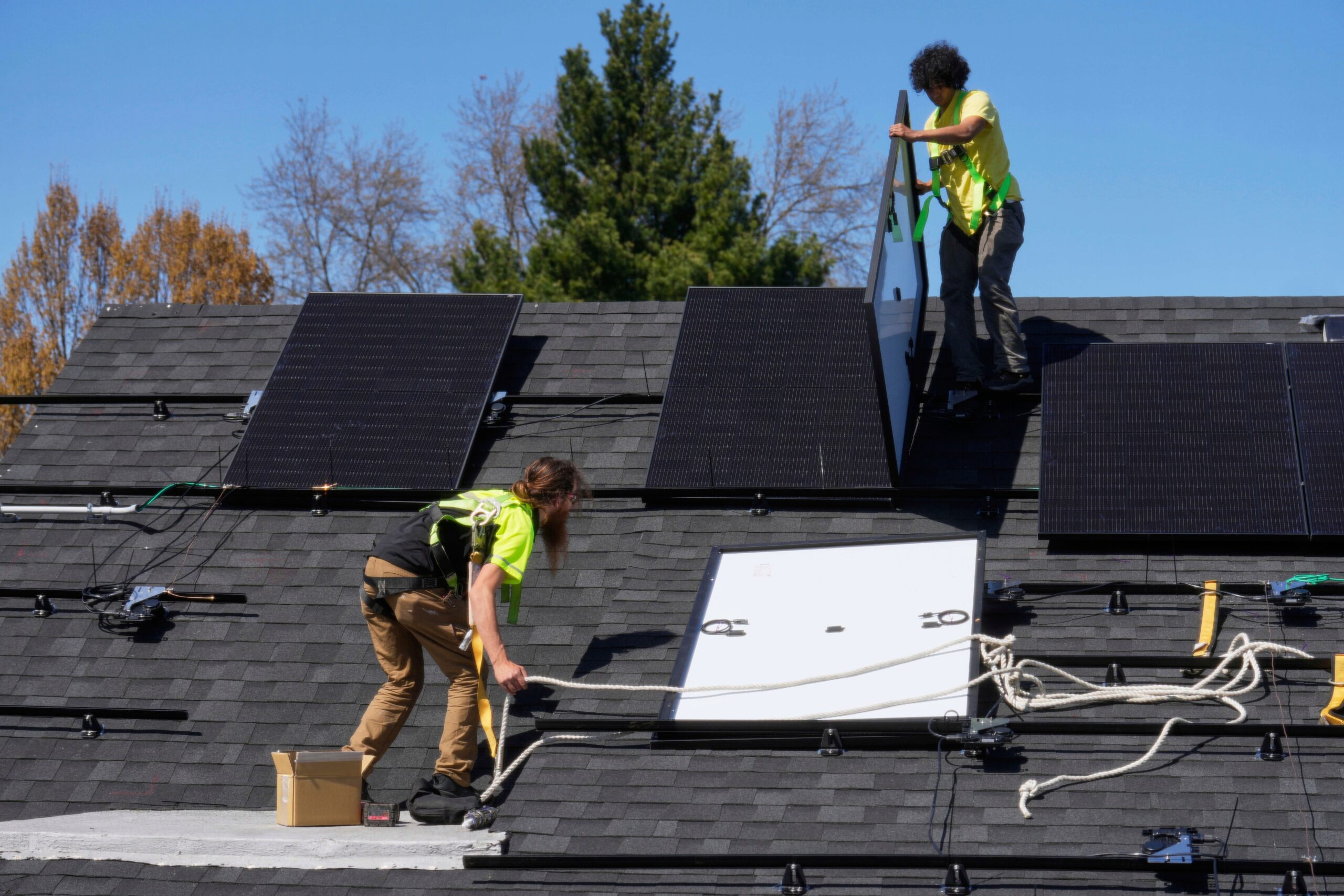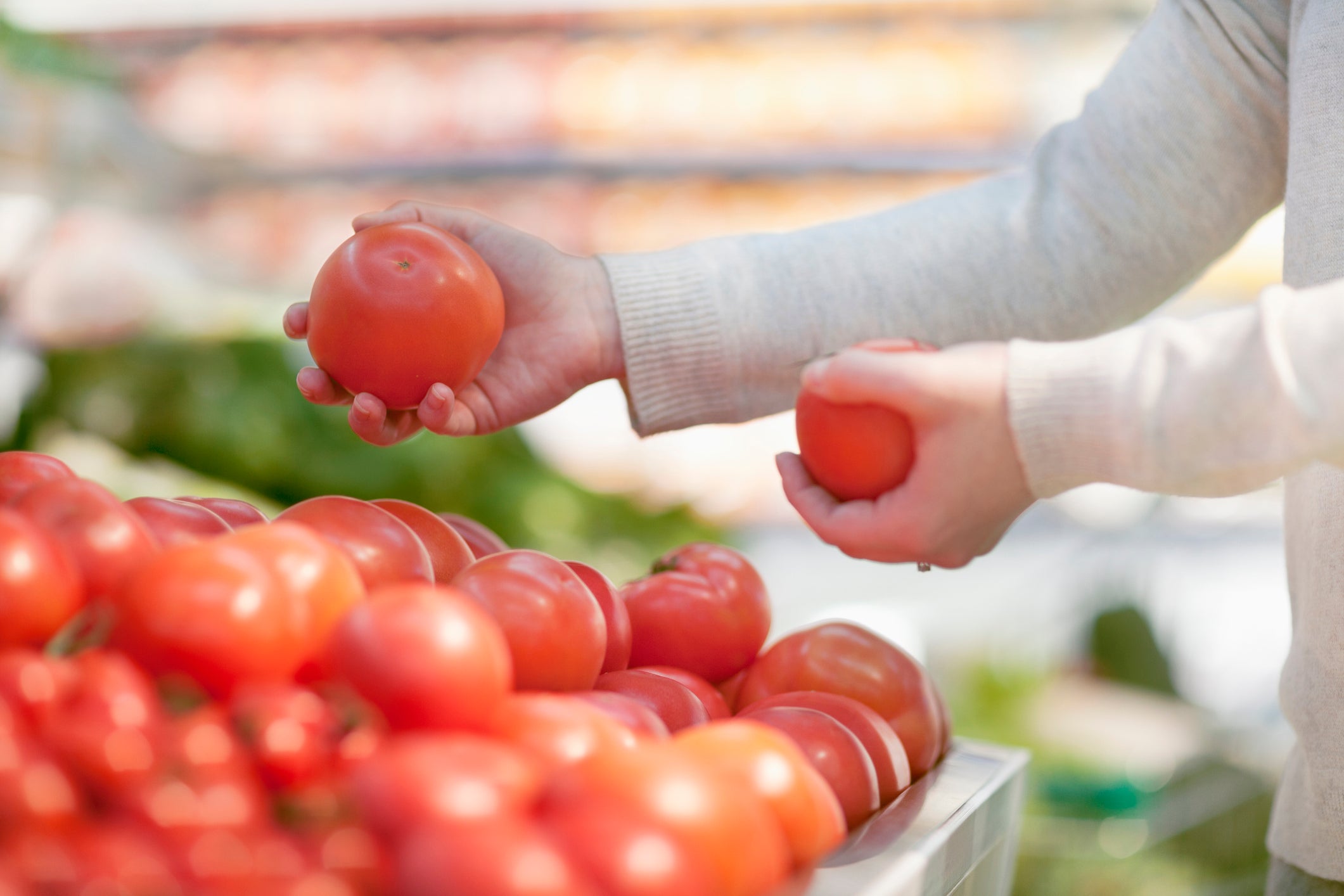From ‘Italian’ tomato puree to solar panels, Britain risks becoming a “dumping ground” for goods made with Chinese forced labour, Parliament’s human rights watchdog has warned.
The products are linked to forced labour in the Xinjiang Uyghur Autonomous Region, where thousands are made to work under threat and guard. These goods then enter UK supermarkets and energy firms.
The new report, from parliament’s Joint Committee on Human Rights (JCHR), found that the Modern Slavery Act 2015, the key framework governing forced labour, has no “enforceable legislation” to actually stop such products entering the UK market.
Unlike Westminster, key markets like the European Union and the United States have stronger laws to enforce bans on forced labour. This means that the goods are more likely to come to the UK.
“We are the weakest protected now in Europe,” former Conservative party leader and current co-chair of Inter-Parliamentary Alliance on China (IPAC) Sir Iain Duncan Smith told The Independent. “People like Ed Miliband [Energy and Net Zero Secretary] are desperate for cheaper product and they don’t want to have to have it slowed up or inaccessible.”
“Such is your desperation to get product in that you don’t care what else you’re going to attract.”
The EU takes an enhanced due diligence approach, and the US takes a hardline approach where parts or goods made in Xinjiang are assumed to be made with forced labour unless proven otherwise.

The cross-party group called on ministers to put in place the necessary due diligence and penalties to establish legal duty rather than the existing “voluntary approach”.
It said the government needed to determine who is responsible for preventing the import of tainted goods and what happens if they are confiscated.
“The UK’s lack of equivalent legislation puts the UK at risk of becoming a dumping ground for goods that cannot be sold elsewhere,” the report said.
But experts warn that even if ministers put these in place, due diligence is not a guarantee.
“The ability of UK companies to actually do due diligence and to police this is basically non-existent, which is why you’re seeing this approach taken in the US,” Evan Fowler of IPAC, told The Independent.
“Not only has Beijing stopped publishing data that had previously been used by researchers to build a picture of what is happening, but the forced labour programme has likely been expanded,” Mr Fowler added, referencing a scheme which moves tens of thousands of people from Xinjiang to work in eastern factories.
The report comes after a BBC investigation found 17 tomato products sold in UK supermarkets were likely made from tomatoes grown and picked in Xinjiang fields with forced labour. The supermarkets contested the findings.
About a third of the world’s tomatoes are grown in China and Xinjiang has the perfect climate for them.
1/3
world’s tomatoes grown in China
“Cargo flights are permitted to bring goods directly from the capital of Xinjiang to the UK unhindered,” the JCHR said.
Concerns have also been raised over base materials used to make solar panels imported into the UK – metallurgical grade silicon (MGS) and polysilicon.
Xinjiang accounts for about 35 percent of the world’s polysilicon and 32 percent of the world’s MGS, according to a 2023 report on the Uyghur region and solar panels.
In April the government passed an amendment to the Great British Energy Bill to ban forced labour in its supply chains – which drew similar criticism for its lack of due diligence or penalties.
35
percent world’s polysilicon made in Xinjiang
It was also criticised for not covering private solar farms, who are eligible for generous state subsidies through Contracts For Difference.
“The government seems to turn a blind eye to slave labour,” Sir Iain told The Independent.
However, tracing products back to their true origin is often complicated by a lack of transparency from producers.
Firms often split their supply between countries to claim tainted products go elsewhere or choose not to disclose where parts were sourced.
Some constituents who ask where solar panels are sourced are falsely told they are made in Germany, Sir Iain told The Independent.
“Well, they’re not made in Germany. It’s just that the company producing them, they have a middle man. So that disguises where they came from. They never declare that they came from China.”

China also increasingly frames due diligence as a national security threat, experts say.
“China is broadening the scope of what it considers to be national security sensitive when it comes to due diligence,” Andrew Yeh, Executive Director of the China Strategic Risks Institute, told The Independent.
“So anyone who is trying to trace which companies are involved or whether their supply chains are linked or not, are potentially crossing the Chinese government’s red lines when it comes to how it thinks and defines national security.”
Sir Keir Starmer’s Government has sought to balance a revival of relations with Beijing in its pursuit of growth with matters of national security amid concerns about Chinese interference in Britain and human rights concerns.
China has denied accusations it is subjecting the Uyghur minority to forced labour.
